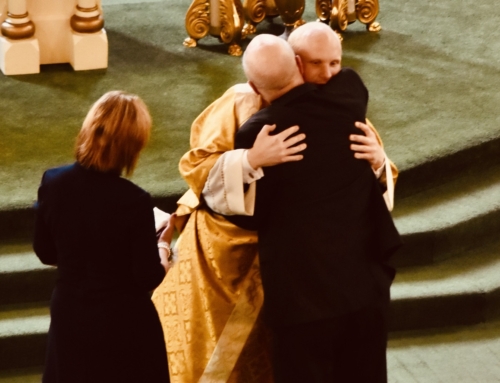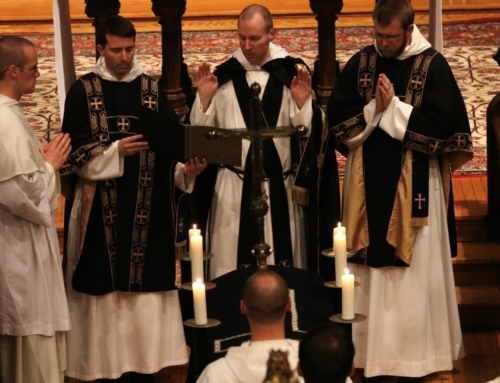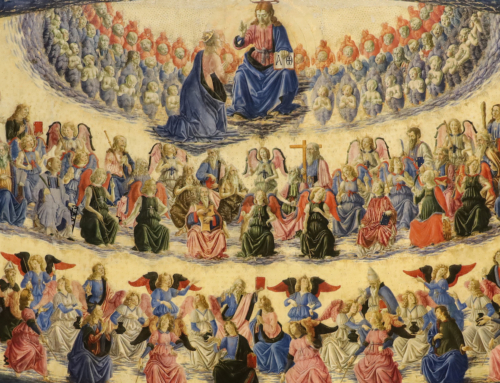Once I was waiting in line for Confession at my home parish. When a man walked out of the confessional, I recognized him immediately. He was the father of an old friend with whom I had lost touch. He was always a gregarious man, but now, his countenance was filled with so much emotion. His face was gloomy as if he had just seen death, but also glowing as if he had discovered something new.
He approached me, and, to my surprise, we had a heart-to-heart in the middle of the line. He shared with me that his mother recently passed away, and his whole world was turning on its head. He’s been praying like never before, he’s been going to Mass, his soul was renewed through an encounter with death. After a kindhearted embrace, he left with tears in his eyes. They were the tears of a man who just lost someone dear, but also the tears of one who was reunited with a long-lost Friend (John 15:15).
People sometimes have a conversion when they lose a parent. What accounts for this curious phenomenon? At the very least, the loss of a parent dramatically shakes our world. From our youth, we often think of our parents as giants or superheroes. All of a sudden, the person whom we thought was invincible is gone. Death becomes much more real.
Where do we turn after this encounter with death? As in the case of my friend’s father, we often turn to God. The monumental loss of a parent leads to equally monumental suffering, and so we may turn to God for consolation. On the other hand, we may turn to God with fingers pointed in accusation: “Why did this happen? How could you have let this happen?” Whatever the reason, we turn to God because we must admit that these matters are beyond our control. This is the fundamental reason for looking to God: Although we may try to manage these profound realities, God is the Lord of the living and the dead (Rom 14:9).
When we‘re caught up in this realization of God’s sovereignty, is it any wonder that we find ourselves seeking a relationship with him? Death helps us to realize how fragile human life really is. But rather than being led to despair, there is a spark of confidence and hope. When we lose a loved one, our suffering collides with God’s providence, and we recognize that “the Lord is near to the brokenhearted, and saves the crushed in spirit” (Ps 34:18).
When we see that the Lord is near, it becomes clear that, while we are subject to death, he is not. He has triumphed over death and governs all things according to his loving will. Perhaps what is shocking, and what leads to conversion, is realizing that this same one who is so omnipotent is not so out-of-reach. We see how he mysteriously and wonderfully governs the world with his mighty hands. When we turn to him in the silence of our hearts, we feel these same mighty hands holding us with such great care. The voice that magnificently proclaimed, “Let there be light” (Gen 1:3), is the same tender voice that whispers so dearly, “I’ve got you. You are mine, and I am yours” (see Song 2:16; John 17:23).
Many have lost parents, spouses, and children during this current pandemic. When we lose a loved one, we may feel like we’ve lost everything. Nevertheless, these trying times of isolation can dispose us to hear the compassionate voice of God. We can have recourse to our heavenly Father’s tender caresses, especially in this time of social distancing. When we have him, we realize we have everything. We may have lost the one we love, but we have found the one who has loved us from all eternity.
The Lord is near; let him hold you and speak to you. “Let yourself be loved” (Saint Elizabeth of the Trinity).
✠
Photo by Veit Hammer on Unsplash







